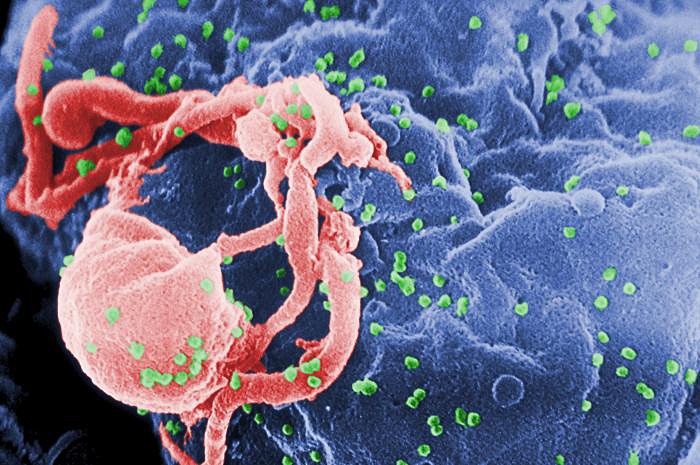Malaysia Airlines Disaster Could Be Setback for AIDS Research

The HIV/AIDS research community expressed sadness today over the loss of prominent AIDS researchers and activists who were aboard Malaysia Airlines Flight MH17, saying that the tragedy could also be a setback for research in the field.
The flight, which was carrying nearly 300 passengers from Amsterdam to Kuala Lumpur, Malaysia, was brought down yesterday (July 17) by a surface-to-air missile while flying over an area of conflict between Ukraine and Russia, according to U.S. government officials. At least several of the passengers on the flight were believed to be headed to the International AIDS Conference in Melbourne, Australia.
Six AIDS researchers and activists were among the victims, according to conference organizers. Among the victims was Dr. Joep Lange, from the Department of Global Health at the University of Amsterdam, whose colleagues call him a pioneer in the field.
"The loss of any one of these HIV/AIDS scholars and researchers is tragic; if a number of them perished, the rate of discovery about HIV may slow while these research programs are reconstituted," said Dr. David Rosenthal, medical director of the Center for Young Adult, Adolescent and Pediatric HIV at North Shore-Long Island Jewish Health System in New York. [30 Years Later: AIDS by the Numbers]
Dr. David Ho, director of the Aaron Diamond AIDS Research Center in New York, said the passing of the HIV researchers "is not only tragic but also devastating to the field, for they are valued colleagues in the struggle against HIV." Ho said Lange was a friend for more than 25 years, as well as an important leader and a tireless advocate for people afflicted by the AIDS pandemic.
Lange was among the key researchers behind several clinical trials that established the efficacy of antiviral treatment for people with HIV/AIDS. He also studied the prevention of mother-to-child transmission of the virus, and was an early advocate of bringing HIV medications to the developing world.
In the 1990s, when researchers were looking into antiretroviral drugs to curb the virus, Lange was an advocate for the use of combination therapies, in which multiple antiretroviral are used. The cocktail of drugs, which is used today, reduces the risk that the virus will develop drug resistance. He also argued that treatment should be tested in the early course of the disease, rather than in people with advanced HIV.
Get the world’s most fascinating discoveries delivered straight to your inbox.
In 2003, Lange completed a study on children of HIV-positive mothers in Rwanda and Uganda. Babies of HIV-positive mothers stand a 15 percent chance of becoming infected during breastfeeding, but Lange found that a baby's chance of contracting HIV falls to less than 1 percent if they receive antiretroviral drugs while being nursed.
Lange was "a brilliant HIV/AIDS researcher who truly advanced the field of HIV and who has helped innumerable people throughout the world," Rosenthal said.
Other members of the HIV community said today that they were preparing for more sad news as the names of the victims were confirmed.
"We are bracing ourselves to hear of the deaths of others who worked in the AIDS response as their names are officially released," Michel Sidibé, executive director of UNAIDS, said in a statement. "The deaths of so many committed people working against HIV will be a great loss for the AIDS response."
On Sunday July 20, attendees of the International AIDS Conference paid tribute to the AIDS researchers and activists that lost their lives on flight MH17.
"It is a solemn atmosphere," said Dr. Sten Vermund, director of the Institute for Global Health at Vanderbilt University School of Medicine, who is attending the conference and knew Lange personally. "We will miss Joep and his activist and scientific Dutch colleagues immensely. I hope that their deaths will ultimately inspire us, though now we are deflated and in mourning. "
Obama also acknowledged the death of HIV researchers today in a statement about Flight MH17. "These were men and women who had dedicated their own lives to saving the lives of others, and they were taken from us in a senseless act of violence," he said. "It's important for us to lift them up and to affirm their lives."
Despite the tragedy, future research will continue to benefit from the contributions of these researchers, Rosenthal said. "We can cherish their HIV/AIDS discoveries, and use this information to further what we know about HIV, to help control the virus, decrease transmission and search for a cure for HIV."
Editor's note: This article was originally published on July 18, and updated on July 21 to include information about a tribute held at the International AIDS Conference, and to add quotes from Dr. Sten Vermund. The number of people on board flight MH17 headed to the conference was also revised from seven to six.
FollowLive Science @livescience, Facebook & Google+. Original article on Live Science

Rachael is a Live Science contributor, and was a former channel editor and senior writer for Live Science between 2010 and 2022. She has a master's degree in journalism from New York University's Science, Health and Environmental Reporting Program. She also holds a B.S. in molecular biology and an M.S. in biology from the University of California, San Diego. Her work has appeared in Scienceline, The Washington Post and Scientific American.


